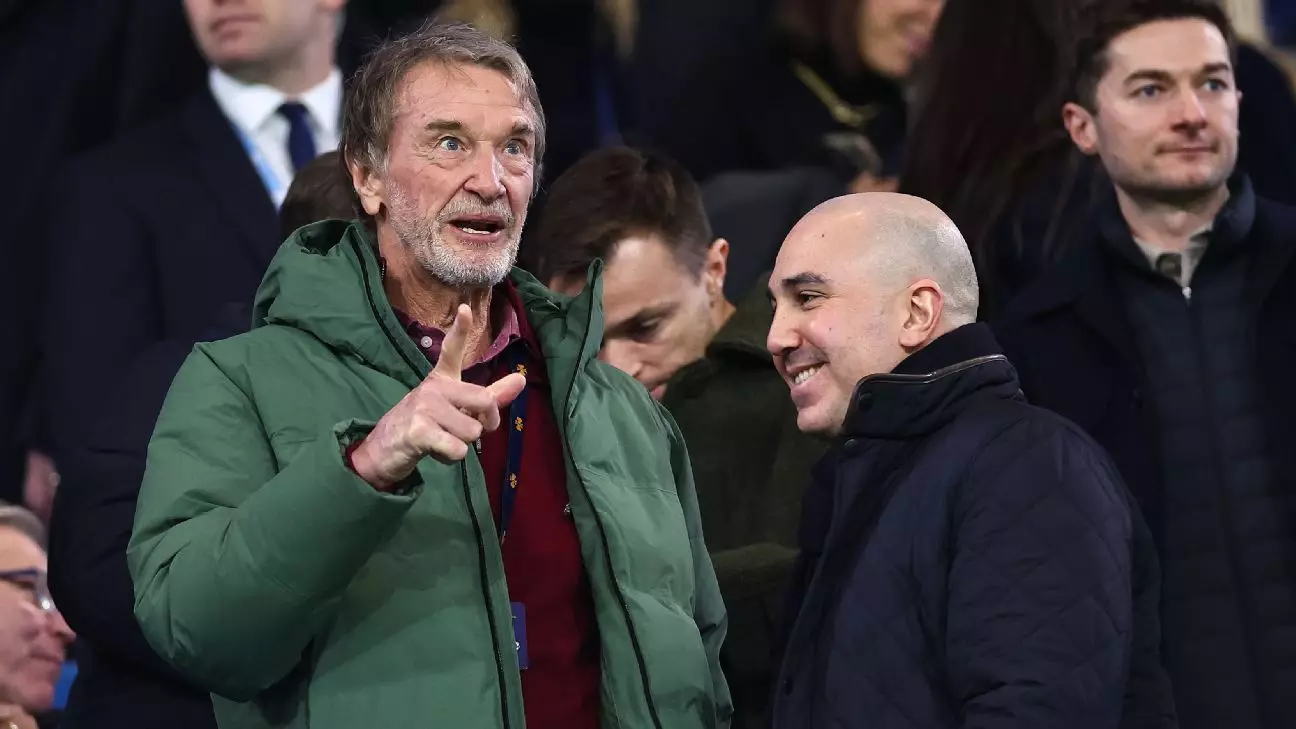Manchester United Football Club, a name synonymous with success and glory, is grappling with significant financial challenges that have prompted management to consider drastic personnel cuts. Under the new minority ownership of Sir Jim Ratcliffe, the club has initiated sweeping measures to reduce expenditures. The recent reports indicate that approximately 100 more employees could face redundancy, adding to the 250 positions eliminated over the summer. This significant downsizing raises questions about the club’s operational efficiency and the long-term impact on its talent pool.
The scale of the financial losses—amounting to £300 million over the past three years—paints a troubling picture of a club struggling to maintain its status in a competitive market. Faced with what insiders describe as a “challenging long-term financial picture,” the club’s leadership must navigate these troubled waters carefully. Each decision, including the potential axing of jobs, reflects a broader strategy to regain financial stability, albeit with the risk of alienating staff and supporters alike.
The end of Sir Alex Ferguson’s ambassadorial role serves as a poignant reminder that even the most revered figures in the club’s history are not immune to the cost-cutting measures being implemented. This shift further underscores the seriousness of the situation and the profound changes occurring within the club’s infrastructure.
Supporter Backlash and Revenue Strategies
The measures taken to counterbalance the staggering financial losses have not been without controversy. Supporter backlash has been fierce, particularly regarding proposed ticket price increases, with match tickets reportedly rising to £66. This decision has sparked outrage among fans who feel that the club, despite its financial struggles, should prioritize accessibility and loyalty over profit. In a letter to fan groups earlier this year, United elaborated on the necessity of “difficult choices” aimed at ensuring compliance with Profit and Sustainability (PSR) and Financial Fair Play (FFP) regulations.
The response from fans indicates deep-seated concerns about the club’s future direction. Many supporters are worried that financial objectives may soon overshadow the club’s storied commitment to its fans. A club’s identity is intrinsically tied to its community, and a failure to acknowledge this can lead to further alienation at a critical time.
As Manchester United navigates these turbulent financial seas, the importance of balancing fiscal responsibility with the club’s rich tradition cannot be overstated. The stakes are high; the decisions made in this period will shape not only the club’s immediate future but also its standing in the football world for years to come.
The leadership must consider innovative ways to generate revenue that do not alienate supporters. Engaging with fans in dialogues regarding financial strategies, as well as exploring alternative revenue avenues—such as enhanced commercial partnerships or community initiatives—could pave the way for a more sustainable business model.
Ultimately, Manchester United stands at a crossroads, with the potential for both restoration and further decline hanging in the balance. It will demand deft management, open communication, and an unyielding commitment to preserving the club’s legacy while confronting the harsh realities of modern football finance. The choices made today will resonate well into the club’s future.

